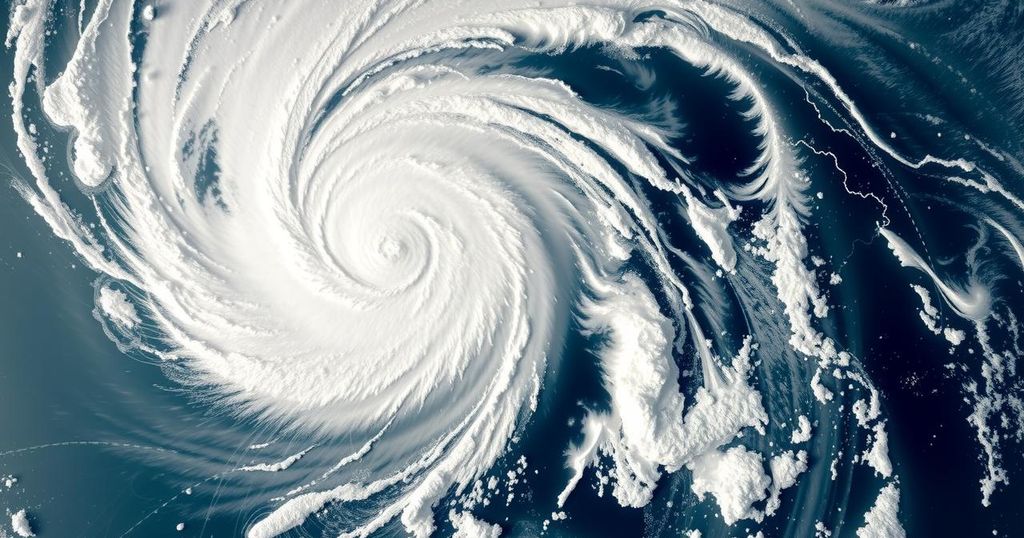Tropical Cyclone Chido’s Impact and Preparedness in Southern Africa
Tropical Cyclone Chido poses a severe threat to Southern Africa, affecting approximately 2.7 million people across countries like Madagascar and Mozambique. The cyclone’s intense rainfall and wind gusts are expected to cause significant damage, with extensive preparedness and humanitarian efforts ongoing to mitigate impacts and ensure community safety.
Tropical Cyclone Chido is significantly impacting Southern Africa, with an estimated 2.7 million people affected across six countries, including Madagascar, Mozambique, and Malawi. The cyclone, which reached Category 4 strength before weakening to Category 3, is expected to bring heavy rainfall and strong winds. Preparatory measures are being implemented, including issuing advisories, repositioning humanitarian supplies, and anticipatory evacuations. The situation is monitored closely, and regional countries are gearing up for additional rainfall linked to this weather event.
Tropical Cyclone Chido developed in the southeastern Indian Ocean and has posed a considerable threat to Southern Africa. As the cyclone approaches, countries such as Mozambique expect up to 200 mm of rain and wind gusts reaching 120 km/h, similar in intensity to past cyclones that affected the region severely. Besides Mozambique, other countries may experience heavy rains and flooding, escalating the risk of humanitarian crises.
Efforts to respond to the cyclone’s impact are well underway, with various organizations activating emergency protocols. The UN Office for the Coordination of Humanitarian Affairs (OCHA) is involved in coordinating and facilitating operations, deploying teams to assess needs, and ensuring the availability of supplies. Agencies are preparing shelters for vulnerable populations and engaging in awareness campaigns to educate communities about the risks associated with the cyclone.
In Mozambique, regional coordination is evident as the National Institute for Disaster Management is finalizing contingency plans, and in Madagascar, logistical challenges remain due to previous cyclone damage. Community engagement by local Red Cross chapters is crucial as they assess resources and activate their crisis response units. The collaborative approach among countries enhances their resiliency against natural disasters like Chido.
Southern Africa has faced several tropical cyclones over the years, which have wreaked havoc on communities through intense rainfall and strong winds. This report details the current situation regarding Tropical Cyclone Chido, highlighting the anticipated impact on various countries and the measures being taken to mitigate such effects. Understanding the geographical and climatic dynamics in this region is essential to grasp the severity of such weather events and the importance of preparedness and response strategies that engage various humanitarian organizations and governments.
In conclusion, Tropical Cyclone Chido presents a grave risk to Southern Africa, with millions at risk due to its potential impact. The proactive measures taken by regional authorities and humanitarian organizations reflect a strong commitment to disaster preparedness and response. Continued monitoring and support will be essential to navigate the challenges posed by this severe weather event and protect the affected populations.
Original Source: reliefweb.int




Post Comment